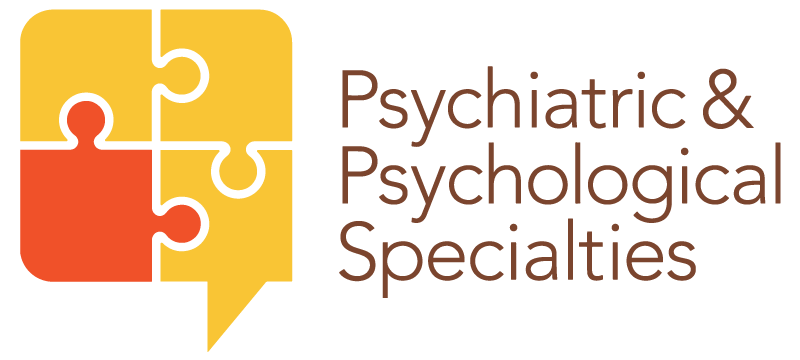
Psychological Assessment FAQ
Why am I Being Referred for Testing?
The purpose behind a psychological assessment is to gain deeper insights into your behaviors and mental well-being. Frequently, mental health experts such as therapists or psychiatrists request a psychological assessment to enhance their understanding of the specific areas in which you require assistance.
A psychological assessment involves meeting with a psychologist over several hours to complete a series of procedures:
Certain tasks may appear more academically oriented (spelling, reading, writing, etc.). Others might involve activities like drawing or responding to questionnaires, and so on. You will be asked highly detailed questions about your strengths and symptoms. Think of it as similar to an X-ray or laboratory test that a medical doctor might prescribe. Their aim is to ensure that you are receiving appropriate treatment for all the aspects in which you require support. This process aids professionals in making well-informed decisions about your treatment.
When is a Psychological Assessment Needed?
A psychological assessment is appropriate in a number of circumstances:
To assess individuals who may be dealing with an undiagnosed, misdiagnosed, or mismanaged psychological issue.
To offer guidance in treatment planning or to provide recommendations regarding suitable treatment settings, such as determining whether residential or outpatient care is more appropriate, or choosing between behavioral intervention and exploratory approaches.
To evaluate individuals with learning disabilities like Attention Deficit (ADD) Disorder or Attention Deficit Hyperactivity Disorder (ADHD). This evaluation could be necessary to secure accommodations for schooling or standardized testing.
To examine behavioral challenges that might be negatively impacting performance in school or professional settings.
For intelligence testing, including Intelligence Quotient (IQ) scores, to determine eligibility for advanced coursework or specialized education programs.
To assess an individual's present condition, social functioning, use of medications, and psychoactive substances.
To evaluate candidates applying for specific positions that require an assessment of psychological well-being and cognitive capabilities.
How do I rule out other factors?
Before beginning a psychological assessment, it’s recommended that you rule out all medical or physical factors that may be affecting you (or your child). For example, you should have your vision and hearing tested if there is an indication that this could be part of the problem.
What is My Role in the Testing Process?
Always recognize that you hold unique expertise regarding yourself and/or your child. While the examiner's primary goal is to deliver an optimal assessment, the input you provide holds equal significance. Your active engagement in the testing procedure, characterized by your insights, honesty, and dedicated effort, is invaluable. Clearly articulating particular concerns before testing can significantly enhance the assessment process.
How Can I Do My Best During the Testing?
Ensure medication, if you (or your child) are taking any, is adhered to according to instructions on the test day. If there's been a deviation from the prescribed regimen, please inform us.
Notify the examiner if you (or your child) experience any compromise in physical condition or emotional state on the test day. Examples include feeling unwell, taking medication that induces drowsiness, insufficient sleep, or dealing with a recent family loss. These factors can impact performance on certain psychological evaluation tests.
Prioritize a restful night's sleep before testing, as fatigue can affect concentration, especially on timed tasks.
Consume a nutritious meal before testing. If the testing period is prolonged, bringing a snack is acceptable.
Utilize offered breaks and request them if necessary. Testing can become draining. Scheduled breaks are provided during lengthy appointments, offering a chance to eat, use the restroom, or, for children, engage with a preferred game or toy.
Can I Go Back to Work or School After I’m Done?
The testing process can take anywhere from 2-4 hours, which may occur over several sessions. Many people feel tired after testing and need time to rest. For both of these reasons, you may have to miss work or school in order to complete testing or you may want to adjust your schedule to allow for resting after the exam, but this up to your discretion.
What Happens When Testing is Complete?
Our team will meticulously analyze the gathered data and produce a comprehensive psychological summary and/or report. We will craft a cohesive explanation of the findings and tailor personalized recommendations.
Typically, these reports encompass:
A comprehensive list of the conducted tests
The underlying motive for the testing
Relevant background details
Observations pertaining to behavior
Test scores
An interpretation of these test scores
Diagnostic insights
Identified strengths
Actionable recommendations
Upon completion of the report, we will arrange a feedback session, during which we'll go through the finalized report and address any questions you may have.
In certain cases, contingent upon your consent and the purpose of testing, we might also collaborate with others, such as school officials or treatment providers, to ensure a comprehensive review of the report.
